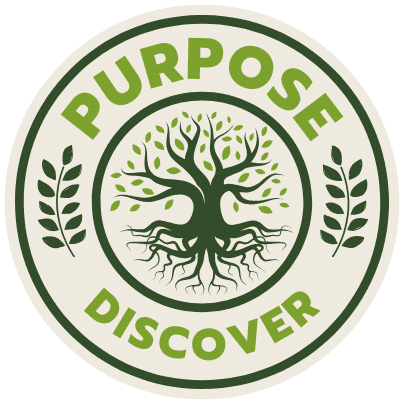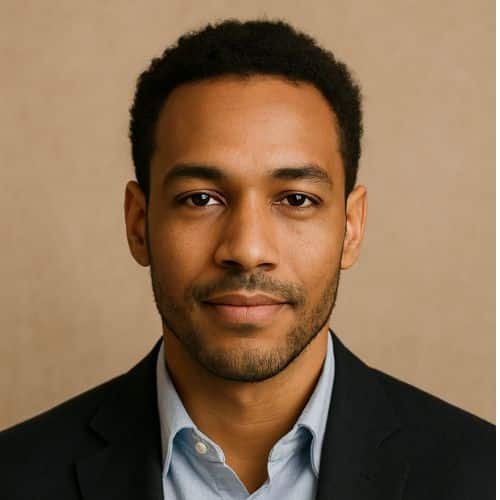There’s something quietly radical about choosing to trust yourself. It’s not about blind confidence or naive bravado. It’s a deep, sometimes shaky, often courageous decision to believe that your own inner compass has something meaningful to say. When you trust yourself, strange and powerful things happen: your actions start to line up with who you really are and why you’re here. Suddenly, what you do feels less like ticking boxes and more like answering an urgent, personal call.
Why is this so rare? Why do so many of us live largely in the land of doubt, second-guessing, and external validation? The truth is, trusting yourself isn’t always straightforward because it asks you to be vulnerable with your own instincts. It demands you step beyond the comforting noise of other people’s opinions and the safe harbor of “what’s expected.” But when you do—when you stop fearing that your gut might lead you astray—you unlock an incredible alignment between your actions and your purpose.
The Subtle Power of Self-Trust
Think about the last time you made a decision solely based on your own feeling, without overthinking or seeking approval. Maybe it was a small choice, like taking a different route home or saying no to a social invitation. Maybe it was bigger—a career move, a creative risk, or ending a toxic relationship. How did that feel? Was there a sense of clarity, even if the outcome was uncertain?
That’s the pulse of self-trust. It’s not a guarantee that everything will work out perfectly but a commitment to yourself that you can handle whatever comes. It’s the foundation for authenticity, and authenticity is what fuels purpose. Your purpose isn’t some lofty, unattainable ideal—it’s a living, breathing part of you, waiting to be honored through your daily choices.
When you trust yourself, decisions stop being battles with doubt and become conversations with your inner wisdom. You stop bending yourself into a shape defined by others and start shaping your life around what genuinely matters to you. There’s a surprising relief in that—like finally dropping a heavy backpack you didn’t realize you’d been carrying.
Why We Lose Touch With Ourselves
There’s no shortage of voices telling us who to be, how to act, what to want. From childhood, we get conditioned to chase external markers of success: grades, promotions, social status. Somewhere along the way, self-trust gets tangled up in this mess of expectations and fears. We start believing that our feelings are unreliable or that our intuition is just wishful thinking.
Social media doesn’t help. It’s a highlight reel of other people’s “perfect” lives, making us doubt whether our own path is good enough. Add in the endless swirl of advice columns, podcasts, and well-meaning friends, and it’s no surprise we feel lost. The more we look outward for answers, the farther we drift from our own truth.
Reconnecting with self-trust means breaking through that noise. It’s a messy, imperfect process because it involves confronting uncertainty and accepting that you don’t have to have everything figured out. Ironically, that uncertainty is where the magic lives.
Actions as a Mirror of Purpose
You can talk all day about purpose without ever feeling it in your bones. Purpose isn’t a platitude or a vague feeling of “doing good.” It’s the alignment of your deepest values with the way you move through the world. When your actions mirror your purpose, you feel a kind of flow. It’s like everything clicks into place, and even the hard stuff makes sense.
Ask yourself: When was the last time you felt truly alive in what you were doing? Not just distracted or busy, but alive? Chances are, that moment came when you trusted your instincts enough to follow a path that felt right, even if it was unconventional or scary.
Purpose isn’t handed to you on a silver platter. It’s discovered in the trenches of everyday choices—saying yes to opportunities that resonate, setting boundaries where you need space, speaking up for what matters, even if your voice shakes. Trusting yourself means your actions start reflecting what you stand for, not what you think you should stand for.
The Role of Failure in Building Trust
If trusting yourself were easy, everyone would be doing it. But here’s the real kicker: trusting your own judgment includes trusting yourself to fail—and to recover. Failure doesn’t have to be a sign you’re off track; it can be the very proof that you’re engaged in something meaningful.
When you trust yourself, failure becomes a teacher, not a sentence. It’s the feedback you need, the reality check that helps you refine your inner compass. You learn to sift through what’s noise and what’s signal in your own thoughts because you’re actively listening, not running from discomfort.
This is where self-trust develops muscle. It’s built by showing up repeatedly, making choices that might not be perfect but are real. And over time, that muscle grows stronger, more confident, more capable of guiding you toward your purpose.
Cultivating Self-Trust: Practical Steps
Trusting yourself isn’t magic; it’s a skill you can cultivate. One way is through mindfulness—pausing to check in with what you’re feeling before making a decision. Another is journaling, where you write down your thoughts and listen for recurring themes or gut feelings that bubble up.
Surround yourself with people who encourage authenticity. Sometimes, the best way to trust yourself is to have others affirm your readiness to trust your own judgment. Seek mentors, friends, or communities where you can be honest about your doubts without fear of judgment.
Also, give yourself permission to make mistakes without beating yourself up. Trust doesn’t mean perfection. It means a willingness to be human, to be flawed, and to keep moving forward anyway.
If you’re wrestling with questions about why you’re here or what drives you, exploring resources designed to help you find clarity can make a big difference. For instance, this insightful guide to discovering personal purpose offers thoughtful exercises and reflections that might spark your journey.
When Self-Trust Meets Purpose, It Changes Everything
Imagine waking up and knowing that what you’re about to do today is meaningful because it aligns with your core self. Imagine navigating challenges not with panic or hesitation but with the quiet confidence that you’re on the right path. That’s the power of trusting yourself.
It’s not about having a map with every detail laid out. It’s about believing in your ability to navigate the terrain, to course-correct when needed, and to move forward with intention. Purpose, then, is less a destination and more a rhythm you create by living true to yourself.
Every moment you choose to listen to your own voice, rather than drowning it out, you strengthen this rhythm. You make life feel less like a series of obligations and more like a dance you’re invited to join. How wild is that?
If you want to dig deeper into aligning your actions with why you exist, consider exploring resources like this comprehensive resource on uncovering your life’s meaning. It’s a place where questions meet clarity, and self-trust begins to flourish.
Trust yourself. It’s the quiet revolution that changes everything.

